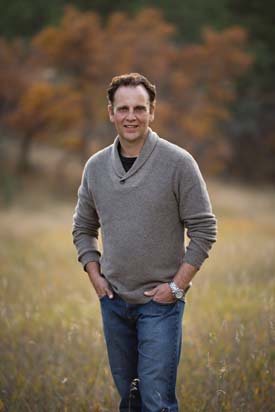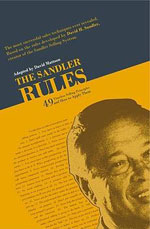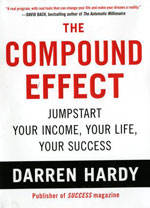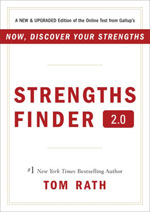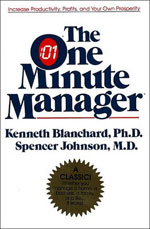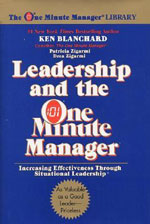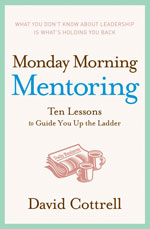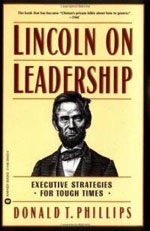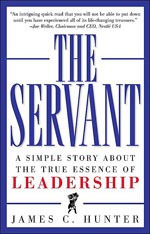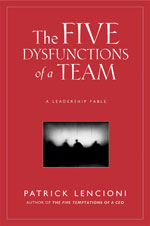 This series of interviews with some of our employees at ConMed has confirmed what I already knew: our leaders are second to none. They are smart, dedicated, and committed to being the very best they can be while striving to be lifelong learners. This week’s interviewee is no exception to these traits. Take some time today to read about what makes him successful and glean some ideas for your own endeavors as well!
This series of interviews with some of our employees at ConMed has confirmed what I already knew: our leaders are second to none. They are smart, dedicated, and committed to being the very best they can be while striving to be lifelong learners. This week’s interviewee is no exception to these traits. Take some time today to read about what makes him successful and glean some ideas for your own endeavors as well!
This leader has dedicated himself to becoming a clinical resource for his surgeons and OR staff. He has established himself as a respected expert in the operating room. This manager has done a great job focusing on developing surgeon champions and maintaining these relationships. His ability to coach before, during, and after surgery has made a major impact on his success in every procedure. His attention to the post-sell with his surgeons and all hospital staff has also been a key to his success in Q1 2013 and achieving quota once again in Q2.
Here are his answers to my questions regarding his game plan for success in medical sales:
What must you love in order to enjoy selling Altrus (or to enjoy medical sales in general)? What would be an indicator that someone would not enjoy medical sales?
If I had to single out one thing you must love in order to enjoy selling Altrus, it would be getting out of your comfort zone. You have to be able to put yourself out there, calling on unfamiliar operating rooms, visiting prospective doctors’ offices, and interacting with people from all walks of life. It goes without saying that you must be proactive and take the initiative to be a success in this position. If you prefer to stay comfortable and wait for things to happen, this is not for you.
Have you ever had a surgeon who, at the outset, was completely disinterested in your product but now is a big believer? What changed that surgeon’s mind? How did you get through to him or her?
Earlier this year, I presented Altrus to a pair of gynecologists who operate exclusively with each other. After a meat demonstration, they showed little interest—despite the fact that Altrus addressed each pain point with their current device. Although they would not give me a commitment for their next case, they did not rule out trying it on an “easy case” when one came along. The next day, I was in the facility where these surgeons operate and ran into an older gynecologist. I took the opportunity to pitch him right there, and he was very excited to try Altrus on his next case. The case went well, and he very quickly became a believer in the product. Shortly thereafter, I requested that he give the two partner surgeons a call to recommend that they try Altrus because of its clinical benefits. As it turned out, this older surgeon was highly respected by the pair, and they agreed to use Altrus on their next case.
As a result of seeking out other surgeons in the facility, I was able to gain a key referral, which opened the door to work with these two busy surgeons. They are now some of my top Altrus users, averaging three to five cases a week.
What has been your most exciting moment in the OR?
It is always exciting to see a surgeon love Altrus when using it for the first time. But, it can be even more exciting to see a surgeon come around even when their first case wasn’t ideal. During one particular evaluation, this ended up being the situation.
At the outset, this GYN surgeon was negative towards changing from the current device, even though he was experiencing significant blood loss in his cases. During the first case with Altrus, the surgeon struggled with the controls and was clearly uncomfortable. However, there was practically no blood loss. He loved the clinical outcome but wasn’t happy with the handpiece ergonomics. One of the biggest challenges we are faced with as surgical device reps is coaching surgeons to “unlearn” previous techniques and develop new ones. It wasn’t the fact that Altrus had any shortcomings—but rather, the surgeon needed to change his technique from that of his previous device in order to use Altrus effectively. After another meat demonstration and a few more cases, this surgeon began to develop proper technique. The fact that there was a drastic reduction in both blood loss and case time helped him make the decision to change his preference card. This was very exciting and rewarding to me because I knew it was a result of persistence and confidence in the device.
What has been your most challenging moment in the OR?
One of the most challenging moments we face in the OR is overcoming a first case that goes south.
In one particular instance, it was an influential surgeon’s first case with Altrus that didn’t go well. During the case, I tried to coach the surgeon on technique, but he didn’t respond well to my suggestions. This led to a helpless feeling because we couldn’t get on the same page. Although I was able to convince the surgeon for another case, it was an uphill battle from that point.
The lesson I learned from this experience is this: set strong upfront contracts for open communication during future cases. Without this agreement with the surgeon in place, it can create an uncomfortable and tense environment, which was what I experienced during this case.
How important is goal setting to your success? How do you go about determining your goals and achieving them?
Goal setting is crucial to my success; it keeps me focused and motivated to go the extra mile every day. Without specific and measurable goals in place, how can you gauge your performance?
Working with my manager, we develop a quarterly business plan consisting of my Altrus target accounts, key influential surgeons in my territory, and a specific “game plan” for reaching quota, along with my personal goals. As the quarter progresses, we assess where I stand and adjust my plan to stay on the right path in order to reach my goals.
How do you handle adversity in the field when things don’t go your way?
A positive attitude and resilience are important qualities to stay confident when facing obstacles or difficult situations. Having a thick skin—as well as not taking things personally—helps me to handle adversity. Having the ability to shrug off negative responses and outcomes is a characteristic of successful salespeople. It is important to view adversity as a hurdle rather than a roadblock. Adversity encourages you to raise your game to meet the challenge.
How do you plan your day? How long in advance do you plan?
I try to stick closely to my P&R itinerary while also making changes based on priority. I also keep a list of other facilities in the same area as my targets for any given day. This allows me to stay productive if my appointments fall through or cases are cancelled. I plan to spend almost every morning in the OR, either working scheduled cases or attempting to pick up add-ons.
My planning is based on my quarterly targets and is broken down week to week. I like to have a firm two-week plan, but I will adjust if cases are added or new evaluations are approved. Effective planning keeps me busy and doing the right things to reach my goals.
What is your best advice for a brand new salesperson?
The best advice I could give someone starting out as a medical sales manager is to use every resource at your disposal.
You have access to information on products, procedures and anatomy, and sales techniques, just to name a few things. Become the product and procedure expert, and you will become a trusted resource for your customers.







